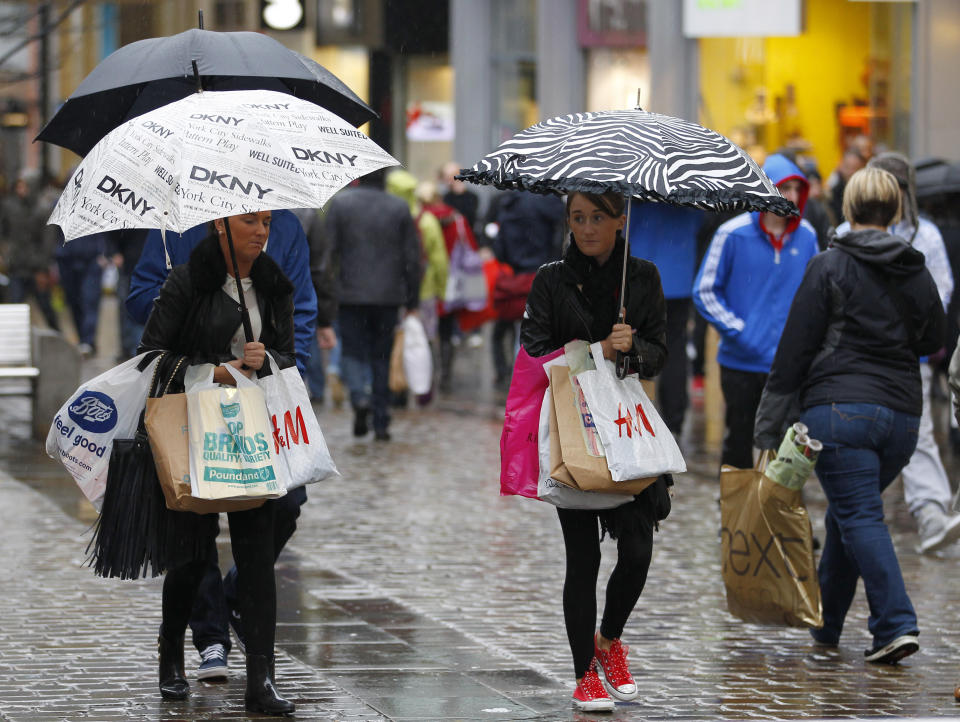Wages are rising at the fastest rate in a decade despite Brexit uncertainty

Wages are at their highest in a decade. Photo: Aaron Chown/PA Archive/PA Images
Average wages are rising at the fastest rate in a decade and employment has reached a record high in the UK, according to official figures released today.
British employees saw the biggest leap in average pay in the three months to February since the UK was hit by the financial crisis in mid-2008.
The Office for National Statistics (ONS) said total earnings were up 3.5%, including bonuses, despite expectations the labour market would be suffering more from the UK’s looming departure from the European Union.
Figures released by the ONS also show employment has soared to its joint highest level since records began at 76.1% of the working-age population. The official unemployment rate has dipped to 3.9%, the lowest since the mid-1970s.
READ MORE: Amazon ‘flooded by five-star reviews’ for popular product
Why are wages and employment on the rise?
It has been suggested high employment levels are forcing organisations to pay more to recruit and retain staff.
But some experts also believe firms are hiring more staff as a response to continued Brexit uncertainty, rather than in spite of it.
In some industries, hiring cheap labour is seen as a less risky and costly option than spending on long-term investment in equipment, technology or other plans to improve productivity or expand production in the future.
As Reuters notes, “the surge in jobs could reflect nervousness among businesses who have cut investment, making them more likely to hire workers who can be sacked in the event of a downturn in the economy.”
Matt Hughes of the ONS said: “The jobs market remains robust, with the number of people in work continuing to grow. The increase over the past year is all coming from full-timers, both employees and the self-employed.”
Will workers feel better off?
Earnings for employees, including bonuses, increased by 3.5% on the year in cash terms, but, after taking inflation into account, were only up by 1.6% https://t.co/kAGkREZmA3 pic.twitter.com/AFEWT6ny4p
— ONS (@ONS) April 16, 2019
Ed Monk, associate director for personal investing at Fidelity International, said British workers were “slowly but surely” becoming better off.
But Monk said the figures were only “half the story” as pay levels had to outpace inflation for households to feel the benefits of any increases in their take-home pay.
Official figures on inflation are set to be released tomorrow, but he said the most recent inflation data – 1.8% on the consumer price index (CPI) – suggested the 3.5% average pay rise would be well above expected increases in everyday costs. He said the Bank of England was unlikely to tighten interest rates.
“A decade of lost wage growth means it may be a while before households feel like they’re getting any richer,” Monk added.
A jobs boom – but not on the high street
One striking feature of the recent jobs boom in the UK is the conspicuous lack of growth in one vital and highly visible area of the economy – the high street.
Pawel Adrjan, UK economist at the global job site Indeed, noted that unlike many previous periods of growth, “Britain’s current jobs boom was not made on the high street.”
He said nearly half a million more people were in work than a year ago, but added: “In many parts of the country, the retail sector has been a passenger at best.
READ MORE: UK recruiter makes a mint despite Brexit uncertainty
“Analysis of the hundreds of thousands of jobs listed on Indeed shows the retail industry’s share of vacancies has fallen steadily.”
He said customer-facing jobs in retail had been the hardest hit by growth in online shopping.

Small firms say tight labour market is ‘yet another headache’
Mike Cherry, national chair of the Federation of Small Businesses (FSB), warned that a tight labour market was “yet another headache” for small business owners, on top of political uncertainty and other rising costs.
Cherry said a sharp drop in Europeans coming to work in Britain, particularly in care, construction and engineering, was damaging his members’ ability to grow.
He hit out at the government’s settled status programme for EU citizens, claiming it was “beset by glitches” that made it too hard for vital EU workers to secure their future rights in the UK.
READ MORE: A record number of stores disappeared from UK high streets in 2018

 Yahoo Finance
Yahoo Finance 